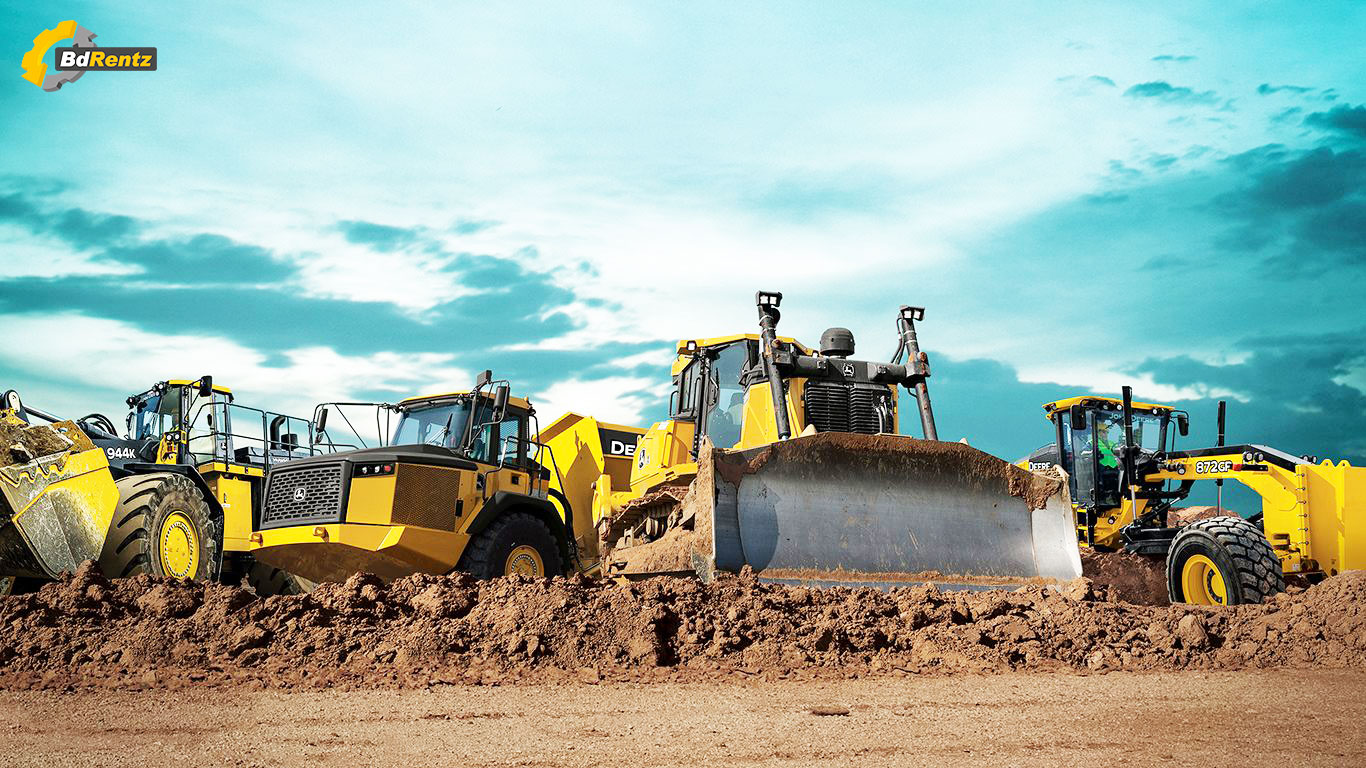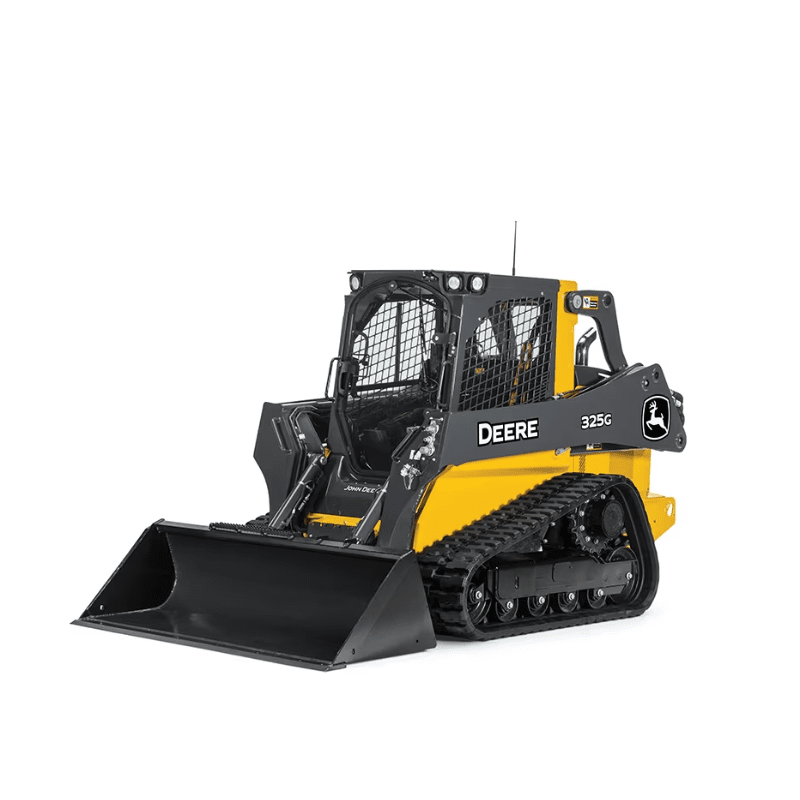Heavy Equipment Rental: Huge Machinery for Any Kind Of Construction Job
Heavy Equipment Rental: Huge Machinery for Any Kind Of Construction Job
Blog Article
Optimize Your Budget by Comprehending the Expenses Connected With Building And Construction Equipment Services
Comprehending the complete extent of costs connected with building tools leasings is crucial for optimizing your budget. What techniques can be used to successfully take care of these expenses and guarantee an extra efficient rental experience?
Summary of Rental Costs
When thinking about building equipment rentals, understanding the associated costs is critical for effective budgeting and job planning. Rental expenses can vary significantly based on numerous variables, including tools type, duration of service, and place. The first rental fee commonly shows the equipment's market need and its connected functional capabilities, affecting the total expenditure.
In enhancement to the base rental rate, secondary expenses might occur, such as transport costs, fuel additional charges, and maintenance fees. It is crucial to account for these additional costs to properly assess the total expense of renting out devices. The rental duration can affect prices; longer leasings may qualify for affordable rates, while short-term leasings could incur greater daily fees.

Break Down of Rental Rates
An extensive understanding of rental prices is vital for service providers and project supervisors aiming to enhance their spending plans. Rental rates for building and construction equipment typically include numerous parts, consisting of base rates, time-based costs, and use costs.
Base prices are the core costs connected with the rental of the devices, frequently determined by the type and dimension of the machinery. These rates can vary dramatically, influenced by elements such as equipment demand, availability, and regional market trends. Time-based fees, which might be daily, weekly, or monthly, offer to suit various project timelines and rental durations.
Furthermore, rental prices might include use costs, which are applicable when tools is utilized past a defined threshold, making sure that the rental firm can represent wear and tear. Seasonal demand changes can also impact rental rates, with peak building and construction seasons generally commanding higher prices.
In addition, comprehending the rental firm's policies regarding upkeep and insurance can supply additional understanding into the total price structure. By evaluating these parts, specialists can make enlightened choices, ensuring the selection of rental tools aligns with both job requirements and budget restrictions.
Additional Fees to Take Into Consideration
Understanding the details of added charges is vital for specialists to handle their general leasing expenses successfully. Beyond the standard rental rates, numerous auxiliary charges can considerably affect the total expense of devices leasing. These charges commonly consist of shipment and pickup charges, which can vary based on distance and logistics entailed in delivering the equipment to and from the work website.
Additionally, check out this site some rental companies might enforce fuel additional charges if the tools is returned with much less gas than when leased. It is likewise vital to be conscious of potential cleaning costs, specifically for specialized tools that calls for comprehensive upkeep after use.

Extensively examining the rental agreement and making clear these extra costs in advance can help service providers prevent unexpected costs and ensure that spending plans remain undamaged throughout the project lifecycle.
Repair And Maintenance Costs
Routine repair and maintenance expenses are usually neglected aspects that can significantly affect the general expense of building tools leasings. When renting tools, it is important to think about not only the rental fees but additionally the potential expenses related to keeping the equipment in ideal operating problem.
Several rental firms include standard upkeep as component of the rental agreement; however, more unexpected malfunctions or considerable repair work can bring about additional expenses. It's necessary to review the rental contract very carefully to understand what upkeep solutions are covered and what duties drop on the renter.
Additionally, tools that is not properly maintained can cause inadequacies on duty website, possibly boosting and creating delays project prices. To alleviate these risks, it is recommended to conduct routine evaluations and keep open interaction with the rental copyright concerning any concerns that occur during usage.
Insurance Coverage and Responsibility Costs
Insurance policy and obligation prices are vital elements that can significantly affect the overall expenditure of building devices rentals (construction equipment rentals). These expenses ensure that both the rental business and the client are protected from possible financial losses arising from crashes, damages, or burglary throughout the rental duration

Furthermore, customers ought to understand see this any kind of deductibles or exemptions in the insurance coverage policy, as these can impact potential out-of-pocket expenditures. Understanding the terms of any kind of insurance policy protection is essential to prevent unanticipated prices. Ultimately, budgeting for insurance and responsibility expenses can assist useful link guarantee a smoother rental experience and secure versus financial threats linked with construction tasks.
Final Thought
In verdict, a thorough understanding of the costs associated with building devices leasings is necessary for efficient budget plan administration. Eventually, educated decision-making concerning devices services contributes to the overall success of construction endeavors.
Rental costs can differ dramatically based on a number of variables, consisting of equipment type, duration of leasing, and area (mini excavator rental). The rental period can affect prices; longer rentals may qualify for affordable rates, while temporary rentals may sustain greater day-to-day costs
By performing detailed research study and involving with trustworthy rental business, contractors can efficiently navigate the intricacies of rental rates, eventually optimizing their monetary sources.
Past the typical rental rates, various supplementary costs can considerably affect the overall price of tools leasing. Rental business frequently give obligation insurance that covers injuries to third parties or damage to home, while devices damages insurance coverage can cover the price of repairs or replacement if the rented out devices is damaged.
Report this page